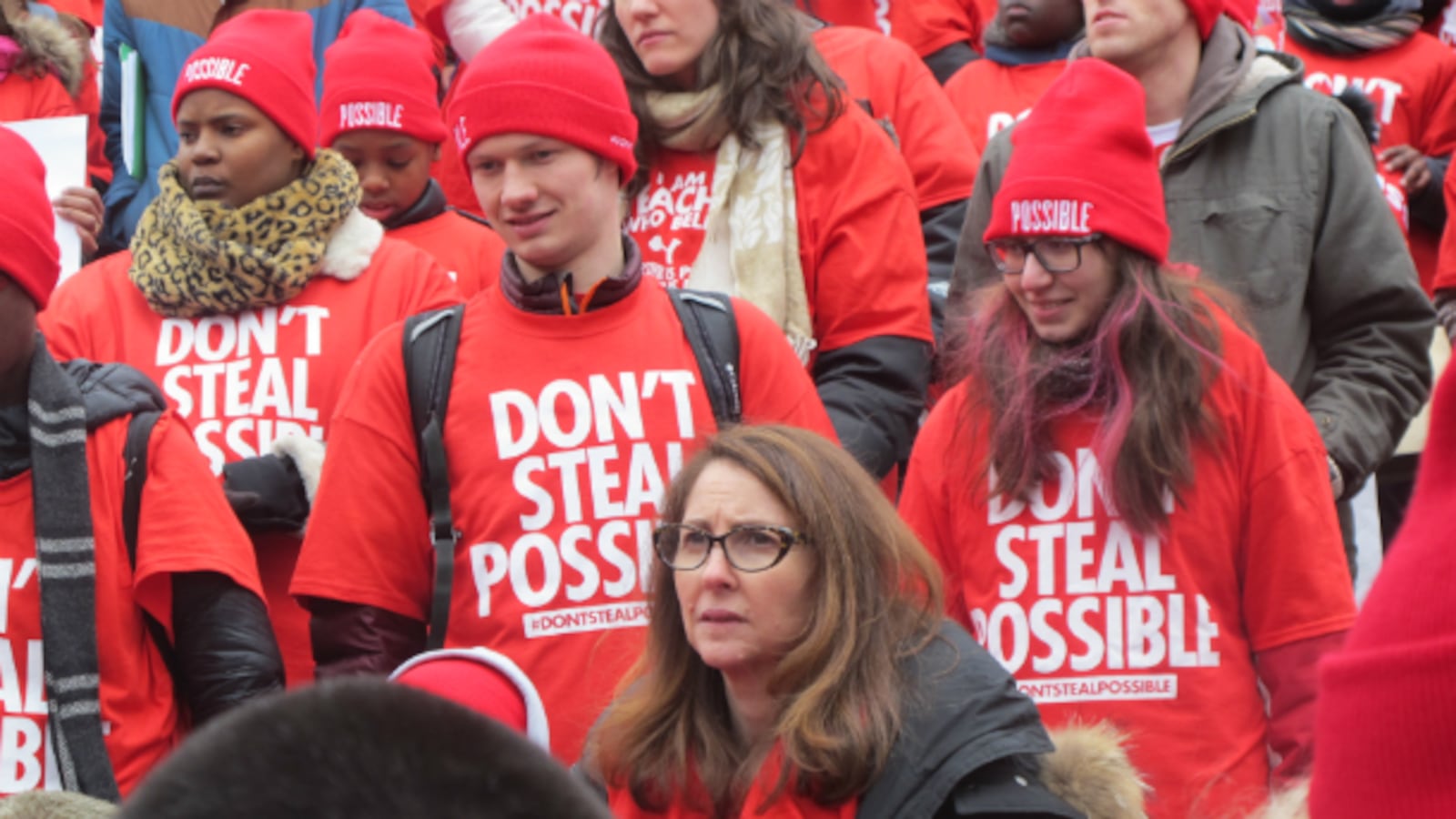After staying behind the scenes for months as a statewide debate over education and charter schools heated up, Eva Moskowitz waded into the fray on Tuesday.
In a lengthy interview on the Brian Lehrer Show, her first since 2011, the Success Academy charter-network founder defended the authenticity of her schools’ lofty test scores, distanced herself from a recent political campaign that has matched the teachers union’s might, and gave her most extensive public comments yet on the “backfill” debate that has divided the charter sector.
Moskowitz also offered a measured take on the role her 32-school network should in play in the larger school system. An expansion to 100 or 200 top-quality schools was possible, but “unknowable,” she said, though she has previously set a goal of getting to 100 schools in the next decade.
“We need lots of different solutions and I think Success has one potential solution to offer,” Moskowitz said. The entire interview can be heard here.
The comments came one day after her top ally in state government, Gov. Andrew Cuomo, indicated that increasing the charter school cap was no longer an immediate priority as state budget negotiations enter their final days. Raising the cap to allow more charter schools to open in the city would enable Success to continue expanding in New York City and has been a top priority for charter school advocates.
Moskowitz didn’t talk about that in the interview, and she also deferred to the advocacy group Families for Excellent Schools, which organizes rallies for Success parents, when asked about recent political fights that’s been waged in recent months. The former city council member, who has expressed interest in running for mayor in the past, also didn’t give a direct answer when asked whether she had ruled out a run.
“I am focused on schools right now and that’s the only thing I am focused on,” she said. “It takes all of the energy I have, other than of course motherhood and my family.”
She did respond to many of the most common criticisms of Success Academy. She denied that her schools focus on test preparation, she said, emphasizing the 13 weeks of training that principals and teachers get every year and on efforts to “design an entire school around creative thinking.” (Chalkbeat has chronicled Success’ extensive test-prep strategies in the past.)
She also defended the network’s commitment to serving high-needs students, while noting that traditional district schools also sometimes move students with the most severe learning needs to other settings, like District 75 programs.
Success schools are among the most sought-after charter schools in the city. The network said Monday that it had received more than 19,000 applications for 2,688 open seats this fall. When ranked by performance on state tests, its schools also rank highly — in the top 1 percent of all schools in the state in math and the top 3 percent in English.
That metric has come under increasing scrutiny, including from other charter-school leaders, because Success Academy has historically stopped accepting new students after early elementary grades. District schools and many other charter schools “backfill” seats that open after students leave the school, allowing them to serve more students who might be needier or be further behind their peers.
Moskowitz described backfill as a “long, complicated debate,” and noted that Success schools now accepts new students through fourth grade. If they backfilled older grades, she said, the incoming students’ lower relative academic preparation would adversely affect the schools’ other students.
“We have an obligation to the parents in middle and high school, and the kids in middle and high school, that until the district schools are able to do a better job, it’s not really fair for the seventh grader or high school student to have to be educated with a child who’s reading at a second or third grade level,” Moskowitz said.
The interview included an unusually critical line of questioning for Moskowitz, whose influence in public education has grown rapidly in recent years. Her schools will serve over 11,500 students next year, more than any other charter network, and she has been a driving force behind a larger political movement, to reform the city’s public school system.

